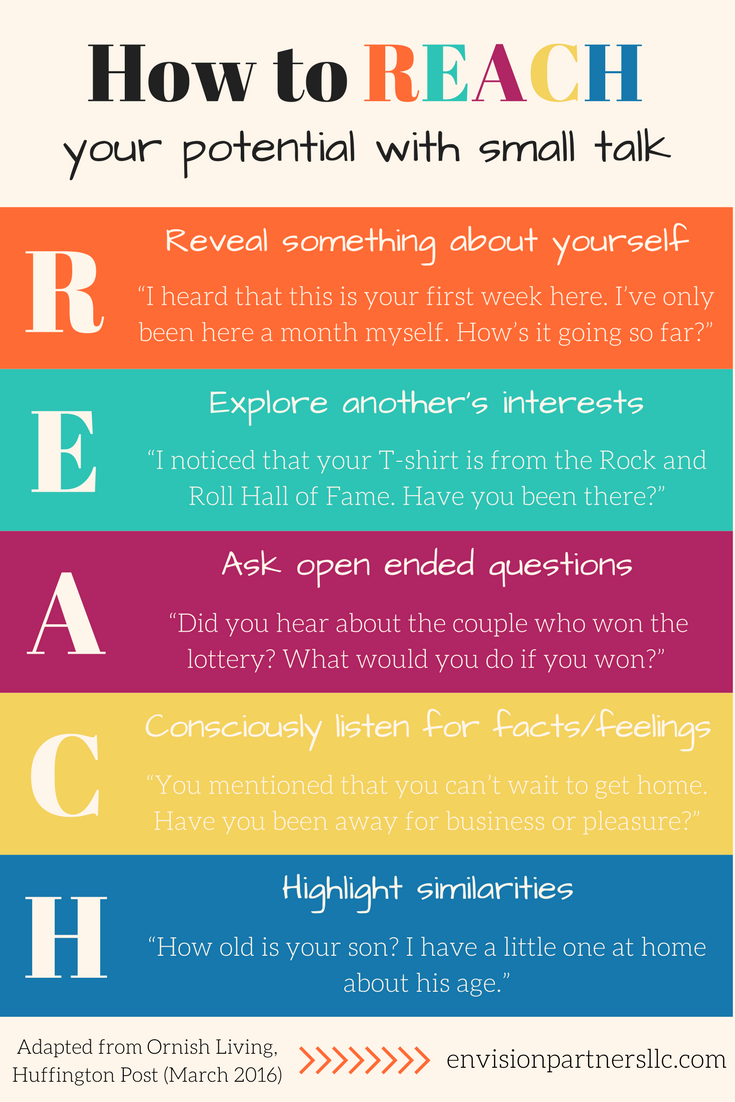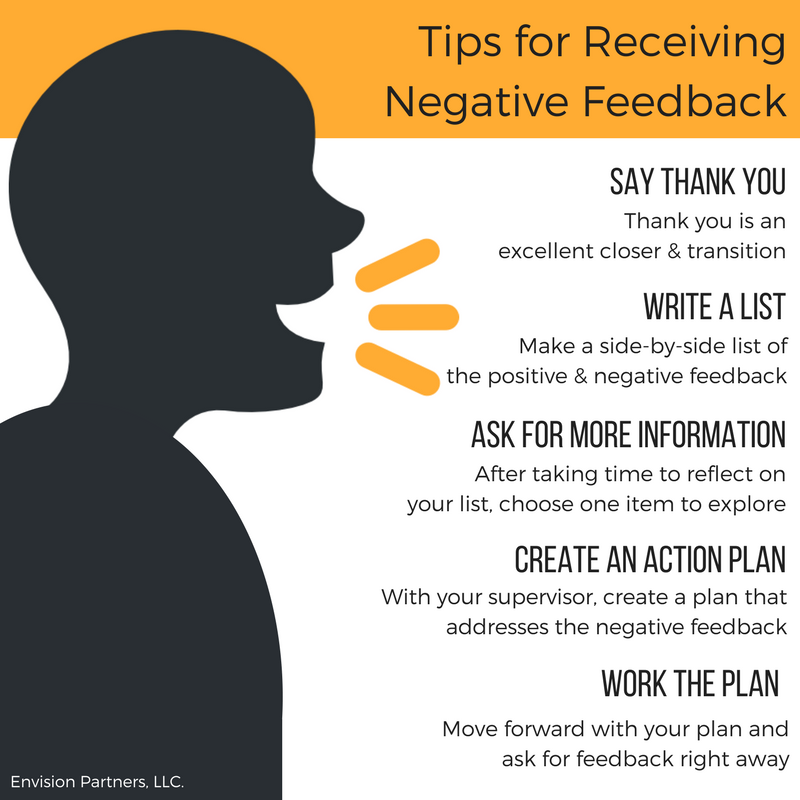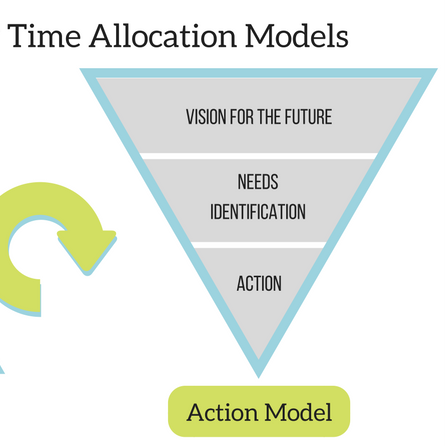A Lot to Say About Small Talk
Several times this week I heard, “Oh but I hate small talk”. Fortunately, it was not in response to my own opening lines–rather it was a response to the suggestion that small talk might be a way to build a better and faster relationship with peers, reports or customers.
Why do some people strongly dislike small talk? Exploring with these individuals, I have developed two reasons.
- Small talk appears to serve no purpose.
- We don’t know how to do small talk.
Small talk is often dismissed as superficial and unnecessary. But what if it isn’t? Anthropologists remind us that humans evolved as social animals. There is plenty of psychological evidence that the words of another person, whether we know that person or not, have calming effects on the brain and increase overall happiness. It also does not matter what the small talk is. The “friendly noises” help build social bonds. The positive emotions built through social connection makes us generally more resilient, creative and productive. That is, makes the rest of the conversation better
In a modern workplace conversation, what role does small talk have?
Small talk is the beginning of building trust. Think about the friends you have known for years. There is a high level of trust, even when they (or you) do something wrong. That is because you know each other in ways that are not about work. When we meet someone new, small talk is the beginning of knowing that person in ways other than through work. Seemingly unrelated conversation helps the other person to see you (and you them) as similar. Through small talk we get a gut feeling that the other person is someone who is like us, and we have similar intentions. Knowing that you are someone ‘like them’, also makes the other person more likely to want to help you. (I think of it as some kind of self-serving altruism.)
Small talk is a test and predictor as to whether the other person will pay attention to what’s important. Small can bring us into the present moment with one another. We use small talk to measure the other person’s intentions and their ability to listen. It is said that US President Franklin Roosevelt in response to “How are you?” replied “I murdered my grandmother this morning”, in order to determine if the other party was really listening. In his experiment, only one diplomat replied, “I am sure she had it coming”.
Small talk establishes social distance. By choosing topics to open conversation we are able to draw people closer to us, or to establish our authority in a situation, for example. Without this opening foray the two parties are not really sure about the nature of the relationship.
Small talk gives us an island of civility. In difficult conversations, having a topic or two between us can give reprieve from the more difficult parts of our discussion. When it gets hot, we can go to or close with a discussion of the small talk conversation. In general, we can end a conversation by referring back to the beginning of the conversation. This is better than saying “Ok, I’m done”.
In the end, spending a little time on small talk actually gets us to the goal of the conversation faster and produces better outcomes.
How do I make small talk?
If we are not good at something, we tend to not like it. Practice improves performance. It doesn’t really matter what you say as much as that you say something. In general, keep good eye contact, drop a genuine compliment, share a common experience or ask a question. These suggestions apply to anyone whether you like small talk or not.
Start with something that you really care about. If you do not care about the weather, don’t ask about the weather.
Be generous. Ask a question that is giving or insightful. Give someone the opportunity to talk about themselves, and you will become known as a great conversationalist. Be more curious about the other person than about yourself. And be prepared to answer a few questions yourself.
Practice. We can have dozens of interactions a day. Try out something new in at least one of those conversations. The following tips from Ornish Living, Huffington Post (March 2016), can get you started. Notice they all start with questions about the other person.
- Reveal something about yourself. To break the ice, summon the courage to smile and introduce yourself: “I work in the next department over and heard that this is your first week here. I’ve only been here a month myself. How’s it going so far?”
- Explore another’s interests: “I noticed that your T-shirt is from the Rock and Roll Hall of Fame. Have you been there?”
- Ask open ended questions: “Did you hear about the couple who won the lottery? What would you do if you won?”
- Consciously listen for facts and feelings that another may share with you: “You mentioned that you can’t wait to get home. Have you been away for business or pleasure?”
- Highlight similarities: “How old is your son? I have a little one at home about his age.”
If nothing convinces you about the importance of small talk, think about how you got to know your best friend or significant other. That relationship probably started with small talk. Who knows what the next relationship might be if we only give it a chance.











